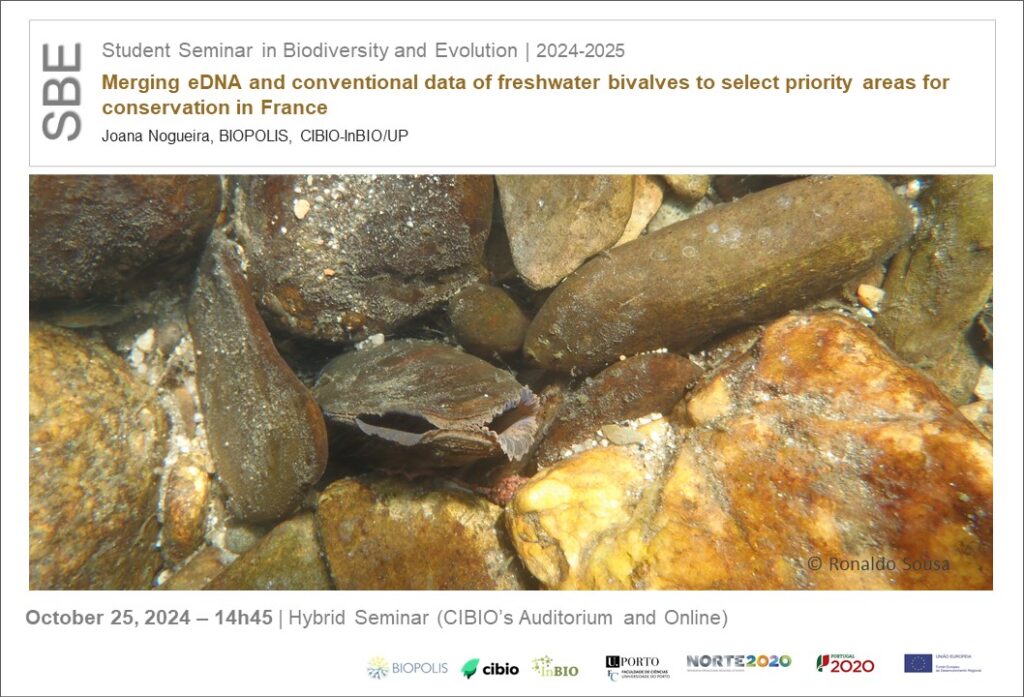Merging eDNA and conventional data of freshwater bivalves to select priority areas for conservation in France
Joana Nogueira, BIOPOLIS, CIBIO-InBIO/UP
October 25, 2024 | 14h45 | Hybrid Seminar (Link: https://videoconf-colibri.zoom.us/j/99764286136)

Information about spatial distribution of species is key feature to select priority areas for conservation. The source of this data is usually derived from species databases, and field surveys, while the potential of environmental DNA data for conservation planning is yet to be fully explored. This work aims to take advantage of the ongoing advances of species identification through eDNA allied to the conventional methods to solve conservation problems with Marxan. For that, we gathered spatial distribution data of 29 species of freshwater bivalves in France from public databases, as well as from field eDNA surveys. Data from the two sources (conventional and eDNA) were used to model species distributions by using all available data (full model); only the eDNA data (eDNA model); only the conventional data (conventional model); and a mixture of different conventional/eDNA percentages of data (50/50–mix50; 75/25-mix25; 25/75-mix75). We then compared the conservation planning solutions from all these scenarios performed against the full model (as an approximation of the true distribution of the species). For each scenario, we assessed the percentage of species targets met, the efficiency of the conservation solutions, the rate of omission and commission errors and the overlap between each scenario and the full model. When including eDNA data we were able to model more species distribution when compared to conventional data, but despite that, this scenario achieved lower targets than the others and even proved to be the less efficient (more sub-basins selected). The use of conventional and eDNA only data have higher commission and omission errors, respectively. Overall, adding eDNA data to a conventional database (mixed models) proved to outperform the use of only conventional data.
More information here